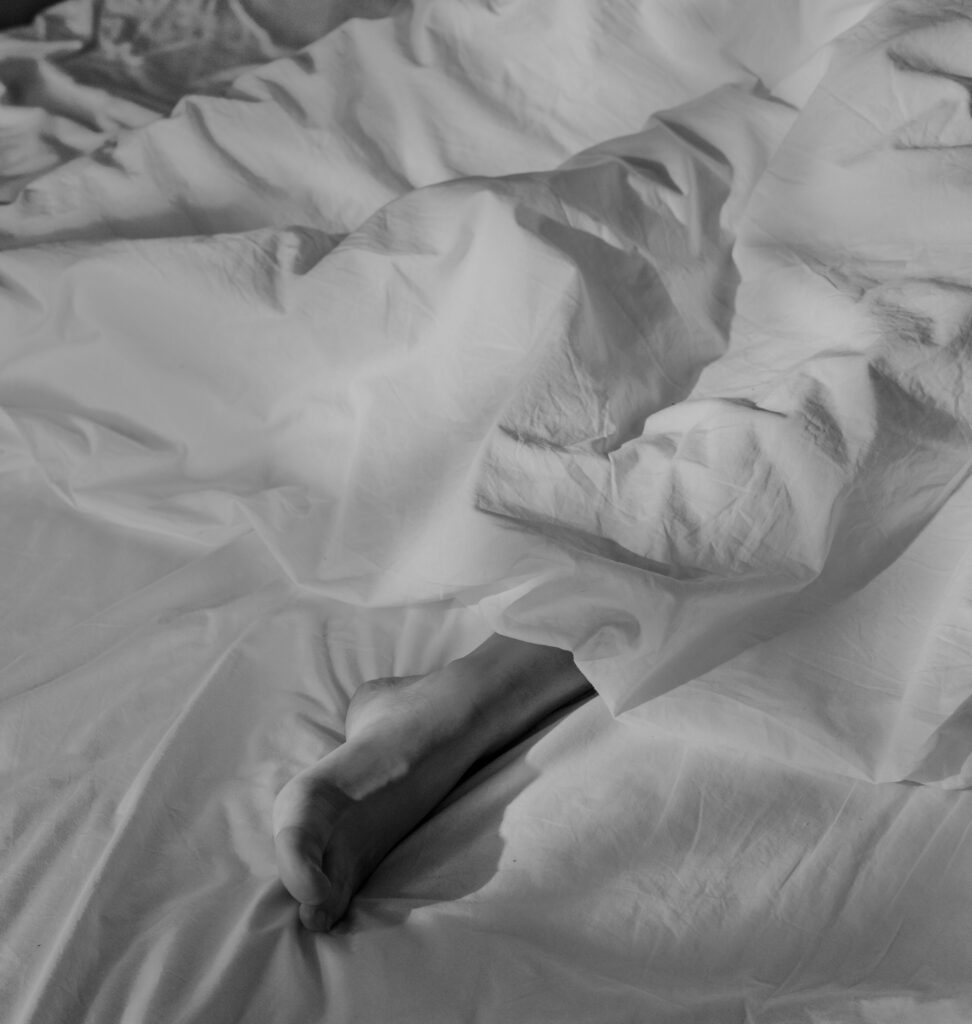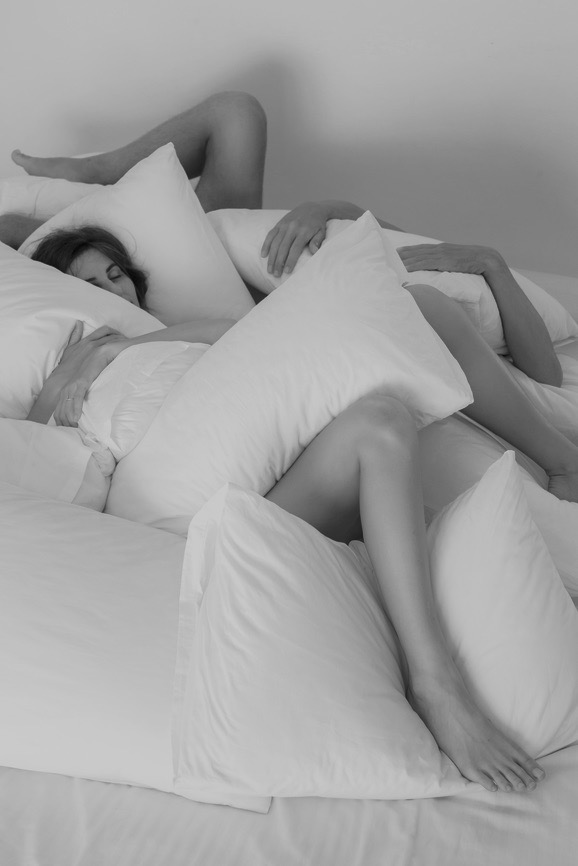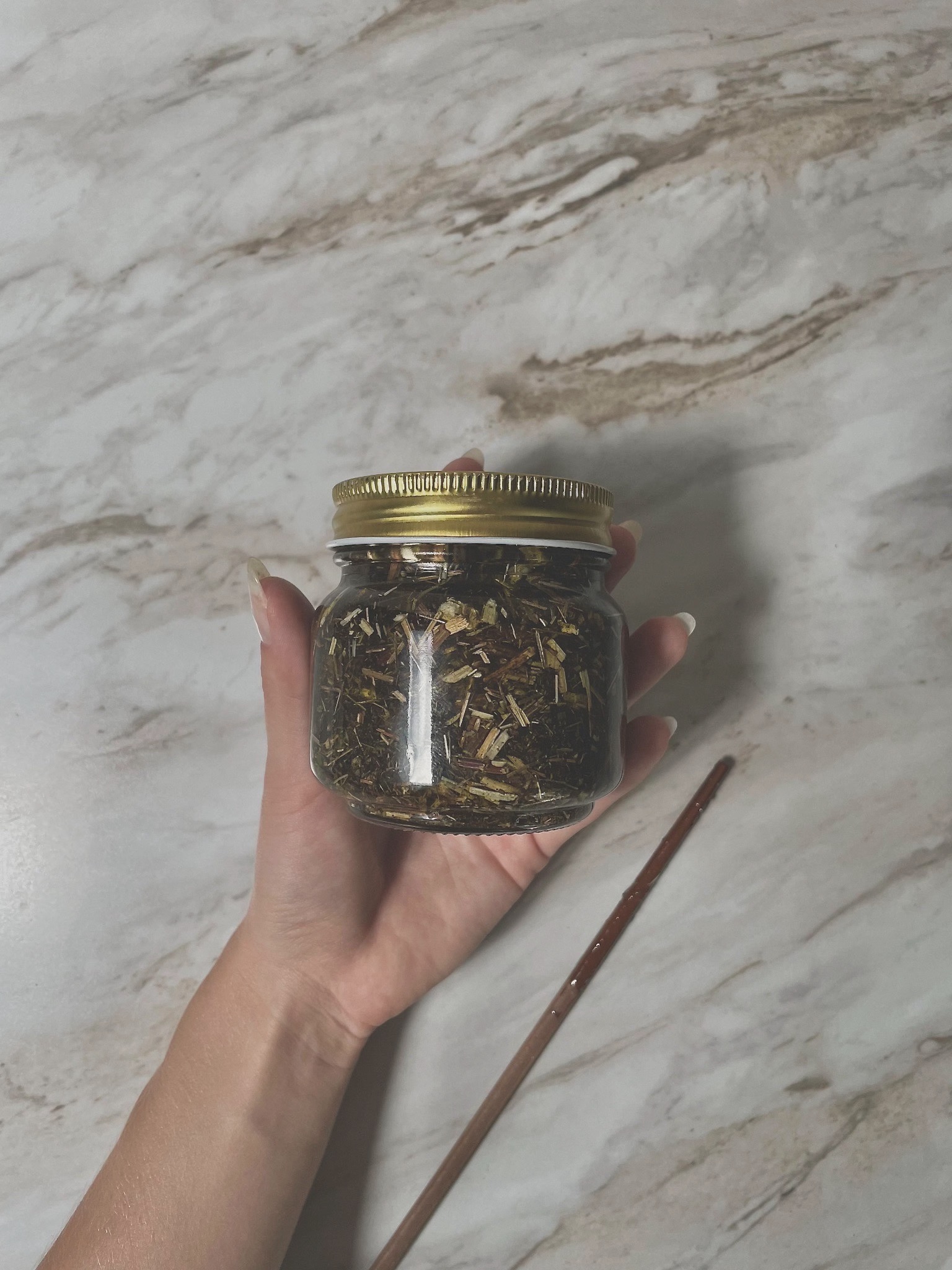Here are the basics: natural light/dark exposure sets our rhythm, bedrooms should be a sanctuary for sleep + sex only, and you need to turn off your WiFi. For details, read on.

THE MORNING SUN + THE NIGHT SKY RULE THE SLEEP KINGDOM
Since the dawn of human existence, the morning sun and the night sky dictated our lifestyle and sleep habits. As soon as the sun rose, we awoke, and when the moon rose we settled in for the evening. It has only been in very recent history that we started manipulating light to accommodate longer working hours and lifestyles.
Without focusing too heavily on the dangers of light exposure at night and how this disrupts natural circadian rhythm, let’s focus on why light exposure in the morning, and darkness in the evening is incredibly good for you.
1. Having a consistent sleep/wake cycle is welcomed by the body. The brain works best when given consistent structure. Even if you go to bed late, you should wake up at the same time. Pick a bed time and stick to it as closely as possible. Same goes for a wake time–even on weekends. And a gentle reminder: 8 hours of sleep is the minimum requirement for rejuvenation. This means going to bed by 10pm and waking at 6am or later is a good goal.
2. Morning light exposure dictates good sleep at night. Bright light in the morning drives hormones in the brain to increase energy, and sets your body up to receive darkness come nightfall–and when sleep is on the horizon. Upon rising, draw back the curtains and and let the morning light pour in. Go outside in the early morning and try to get at least 15 minutes of sunlight exposure on as much bare skin as possible. The benefits of this go beyond ensuring a good night’s sleep, from boosting your immune system, regulating mood, and more.
3. When the moon rises, keep the lights low. We’re not saying that after dark you need to be in nothing but candlelight (but that would be great), but try to keep the lights to a minimum. Nothing too bright, and certainly not every light in the house. Prepping the body for sleep actually begins from the moment you wake up in the morning (see above), so when you are just a few hours away from going to bed, make sure you are priming the body for relaxation.
4. Keep the bedroom dark. Keeping your bedroom as dark as possible is key to allowing Melatonin, a sleep hormone produced in the brain, to increase and allow you to drift off to dreamland. Make sure you have thick curtains or blinds, and that there is no light exposure from electronics, street lights, etc.
BEDROOMS ARE A SANCTUARY FOR SLEEP + SEX ONLY
When folks hear this for the first time they often blush, but its the truth.
Our bedrooms are literal sanctuaries. They hold ceremony for deep relaxation and rejuvenation, the dream world, and more. When kept tidy, fresh, and treated with love and respect, our bedrooms foster the best outcome. Keep work, TV, school, and things of the like out of the bedroom and contained in the living room, office, or library.
Try to keep your bedroom simple and free of too much stimulation. The less electronics the better (please no TV, computers, or cell phones if possible), and bring in some plants or flowers. Allow the fresh air or a nighttime breeze to roll through if the weather permits, and change your linens often to always keep things feeling crisp and refreshed. For an added bonus, create a room spray out of essential oils (try the Dream recipe in Vol. II) to help you unwind, relax, and call in the dream world.
BRING AWARENESS TO THE STIMULANTS THAT DISRUPT YOUR SLEEP
This is usually where we need the most improvement.
When you think of a stimulant that disrupts sleep, we bet the first thing that comes to mind is coffee. You’re right, but there is so much more going on that’s keeping you from a good night’s rest as well.
1. Disconnect from electronics an absolute minimum of 60 minutes before bed. This practice will change your sleep, we promise. No phones, no TV, no computers, no screens of any kind. The blue light that is emitted from these devices essentially cancels out Melatonin (the sleep hormone that increases with exposure to darkness) and also stimulates your adrenal glands to produce cortisol (read: not good). If you are on the brink of bedtime but had to stay up working on a device, grab your favorite book and read for 20-30 minutes before implementing your bed time routine or ritual–even if it means getting to bed a little bit later.
2. Learn how caffeine and sugar impacts your sleep. There are some people who can drink a cup of coffee before bed and pass out. While this isn’t the healthiest option, the lesson here is to really get to know how caffeine (and sugar) can throw off your sleep. Caffeine and sugar are both stimulants, which can not only impact your ability to fall asleep, but also impact your ability to stay asleep (and leave you feeling tired and needing more the next day). If you consume either of these substances, play around with timing to see how you do, or better yet, how taking these things out can improve your sleep.
3. Exercise can either induce or delay sleep. It really depends on the type of exercise you’re doing and how vigorous, but certain exercises can actually hinder your ability to sleep. If you like to exercise at night or before bed, keep it mellow. Go for a walk, stretch, do restorative yoga. Try to keep kickboxing and kung fu fighting for the morning.
4. The information we receive before bed can be too stimulating. This goes for watching the news, social media, having difficult conversations, reading emails, and more. If you hear a news story that triggers you in some way, keeps you up or makes you feel stressed, your sleep will suffer, for example.
5. Turn off your WiFi. This one really needs no explanation, but when you are sleeping, please do yourself and the neighbors around you a favor by turning off your WiFi. We don’t need it when we’re sleeping, and our bodies are desperate for a solid break from the continuous and relentless EMFs. Suggest that your neighbors do the same for an added bonus.
Questions? Please leave them below.
Aug 3, 2022






Comments +